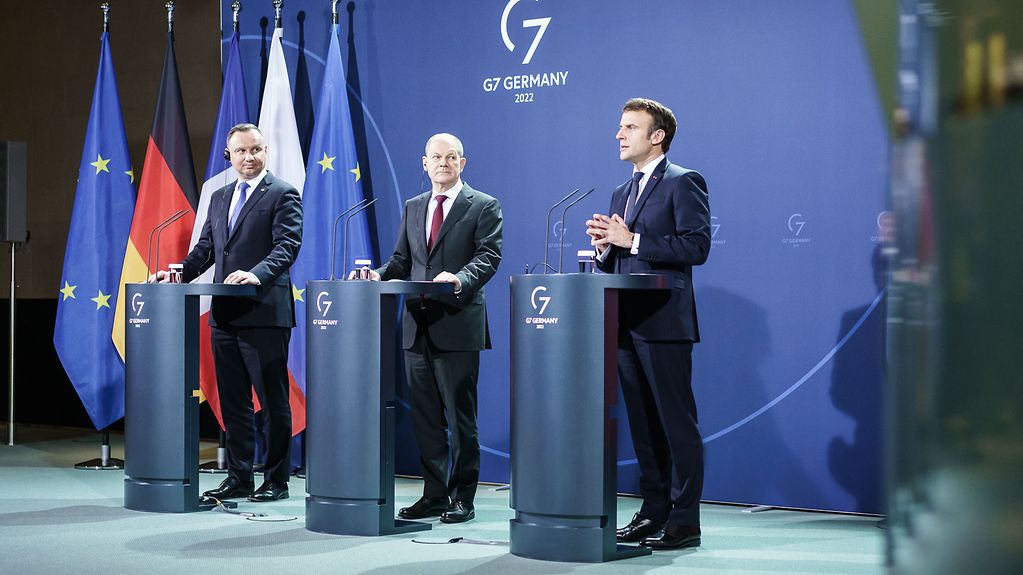Weimar Triangle
Federal Chancellor Olaf Scholz received the President of France, Emmanuel Macron, and the President of Poland, Andrzej Duda, at the Chancellery for a meeting of the Weimar Triangle. The talks focused primarily on the situation on the Ukrainian border.
2 min reading time

Federal Chancellor Scholz at the press conference with French President Macron and Polish President Duda.
Photo: Bundesregierung/Denzel
Ahead of the talks with French President Macron and Polish President Duda, Federal Chancellor Scholz stressed that the deployment of Russian troops on the border with Ukraine was “very worrying”. The three countries shared exactly the same assessment of the situation and had the same attitude, too, said Scholz.
“Any further violation of Ukraine’s territorial integrity and sovereignty is unacceptable and would have far-reaching consequences for Russia – politically, economically and certainly geostrategically,” the Federal Chancellor said.
After the meeting, the heads of state and government of the Weimar Triangle stressed their joint commitment to the European and transatlantic security architecture in a Berlin Declaration.
Keeping peace in Europe
As the Weimar Triangle, Germany, France and Poland were making every effort to ensure a de-escalation of an “extremely tense situation”, said Scholz. “We are all share the same goal: to keep the peace in Europe by means of diplomacy, clear messages and a common will to act in unity,” said Scholz.
The Weimar Triangle dialogue platform
The countries of the Weimar Triangle have a particular responsibility in the current international crisis and are coordinating closely with each other: France currently holds the Presidency of the EU, Poland holds the Presidency of the OSCE and Germany holds the Presidency of the G7.
The Weimar Triangle dialogue platform was launched in 1991 at the initiative of the Federal Government. More than three decades after the end of the Cold War, Germany’s close coordination with its direct neighbours France and Poland through this platform remains as important as ever.
For Germany, France and Poland are not just the two neighbouring countries with the largest populations, they are also close partners and allies. For this reason, the Federal Government strongly supports the Weimar Triangle platform.
Regular dialogue at a high level
In particular, the foreign ministers and other ministers of Germany, France and Poland regularly engage in dialogue on practical political issues. The Weimar Triangle offers a sound basis for discussing current and fundamental issues from the perspective of these three major Central European states.
In the autumn of 2021, the foreign ministers of Germany, France and Poland celebrated the 30th anniversary of the founding of the Weimar Triangle.